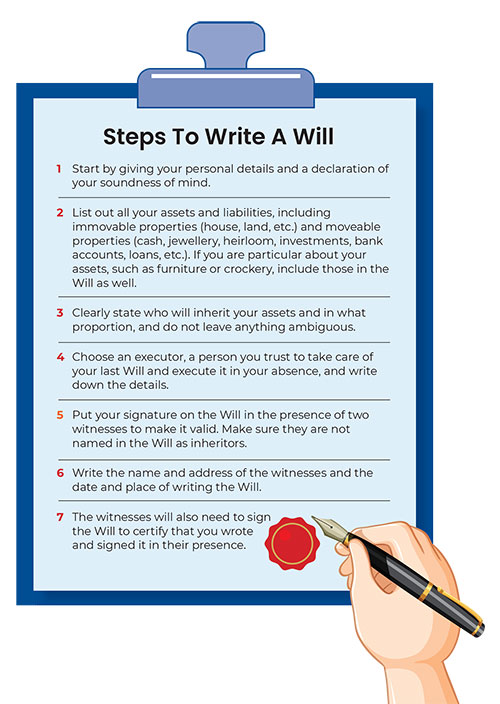Writing a Will is usually not something that is not on top of the mind for most, but it can put a lot of issues at rest that can potentially arise after you pass on. A Will is an important document for planning your legacy, ensuring that your property and assets are distributed to your loved ones in accordance to your wishes.
Not writing a Will may cause unnecessary conflicts in the family, and in some cases, if not resolved, may even reach the court.
While seniors who have not done do already should do it immediately, even younger people should consider it. The only requirement is that the testator (the one who writes the Will) should be above 18 years of age, of sound mind, and should be under no influence, force, or coercion. Lastly, the Will should be made out of free will.

Things To Keep In Mind
In case the beneficiary is a minor, provide details of the person you choose as the minor’s guardian till the minor attains majority.
Keep the language as simple as possible to ensure there is no doubt among the beneficiaries.
A Will should be written clearly, so avoid making corrections.
Choose an executor (person who administers the estate after your death), so that you don’t have to find another person if the executor passes away before you.
The testator can change the Will at any point in their lifetime.
Keep the original Will in a safe place and copies of it in another place, or with a legal advisor.
You should also register your Will. Though registration is not mandatory, it ensures the Will’s legal validity and can stand the test of a court case, if the situation arises.
Also, attach a doctor’s certificate that states that you are mentally competent, to avoid any future disputes.










